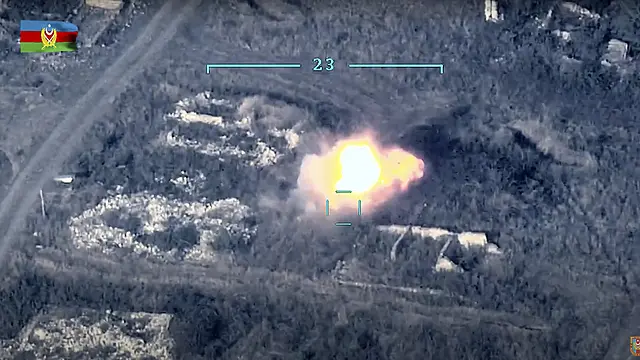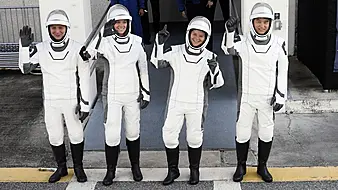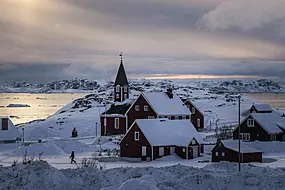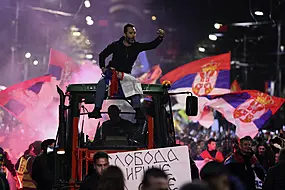Azerbaijan’s president said his military had suffered losses in the fighting over the disputed separatist region of Nagorno-Karabakh.
Armenia also claimed that two Azerbaijani helicopters were shot down and three Azerbaijani tanks were hit by artillery, but Azerbaijan’s defence ministry has rejected that claim.
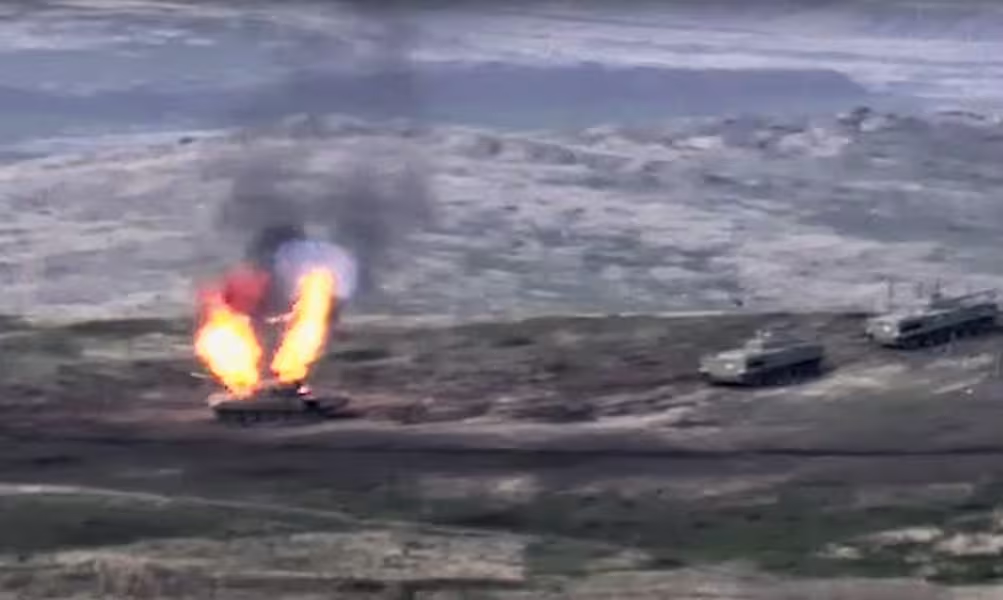
Heavy fighting broke out in the morning in the region that lies within Azerbaijan but has been under the control of ethnic Armenian forces backed by Armenia since 1994 at the end of a separatist war.
It was not immediately clear what sparked the fighting, the heaviest since clashes in July killed 16 people from both sides.
Nagorno-Karabakh authorities reported that shelling hit the region’s capital of Stepanakert and the towns of Martakert and Martuni.
Armenian Defence Ministry spokesman Artsrun Hovhannisyan also said Azerbaijani shelling hit within Armenian territory near the town of Vardenis.
Artur Sarkisian, deputy head of the Nagorno-Karabakh army, said that 16 people were killed and more than 100 wounded. It was not immediately clear if the figure included both soldiers and civilians.

Earlier, the Armenian human rights ombudsman said a woman and child had been killed in the shelling.
Another Armenian Defence Ministry spokeswoman, Shushan Stepanyan, said “the Armenian side” shot down two helicopters and hit three tanks.
Azerbaijani president Ilham Aliyev ordered martial law be imposed in some regions of the country and called for a curfew in major cities.
In a televised address to the nation, Mr Aliyev said that “there are losses among the Azerbaijani forces and the civilian population as a result of the Armenian bombardment” but did not give further details.
He also claimed that “many units of the enemy’s military equipment have been destroyed”.

Russian foreign minister Sergey Lavrov “is conducting intensive contacts in order to induce the parties to cease fire and start negotiations to stabilise the situation,” Foreign Ministry spokeswoman Maria Zakharova said.
Albanian prime minister Edi Rama, chairman of the Organisation for Security and Co-operation in Europe (OSCE), called on both sides to stop fighting.
The long-running and unsuccessful negotiations for resolving the territory’s status have been conducted under the auspices of the OSCE.
Armenian prime minister Nikol Pashinian said on Sunday that the country could re-examine whether to recognise Nagorno-Karabakh as independent. Such a move would likely obstruct further negotiations.
The news was harshly received in Turkey, a close ally of Azerbaijan.
Turkey’s ruling party spokesman Omer Celik tweeted: “We vehemently condemn Armenia’s attack on Azerbaijan. Armenia has once again committed a provocation, ignoring law.”

He promised that Turkey would stand by Azerbaijan and said: “Armenia is playing with fire and endangering regional peace.”
Turkish presidential spokesman Ibrahim Kalin also condemned Armenia.
“Armenia has violated the ceasefire by attacking civilian settlements … the international community must immediately say stop to this dangerous provocation,” he tweeted.
Nagorno-Karabakh is a mostly mountainous region of some 4,400 square kilometres (1,700 square miles) and lies 50 kilometres (30 miles) from the Armenian border.
Local soldiers backed by Armenia also occupy some Azerbaijani territory outside the region.
Speaking at the the Vatican on Sunday, Pope Francis said that he was praying for peace between the two countries, urging them to them to “accomplish concrete deeds of goodwill and fraternity” to reach a peaceful solution through dialogue.
